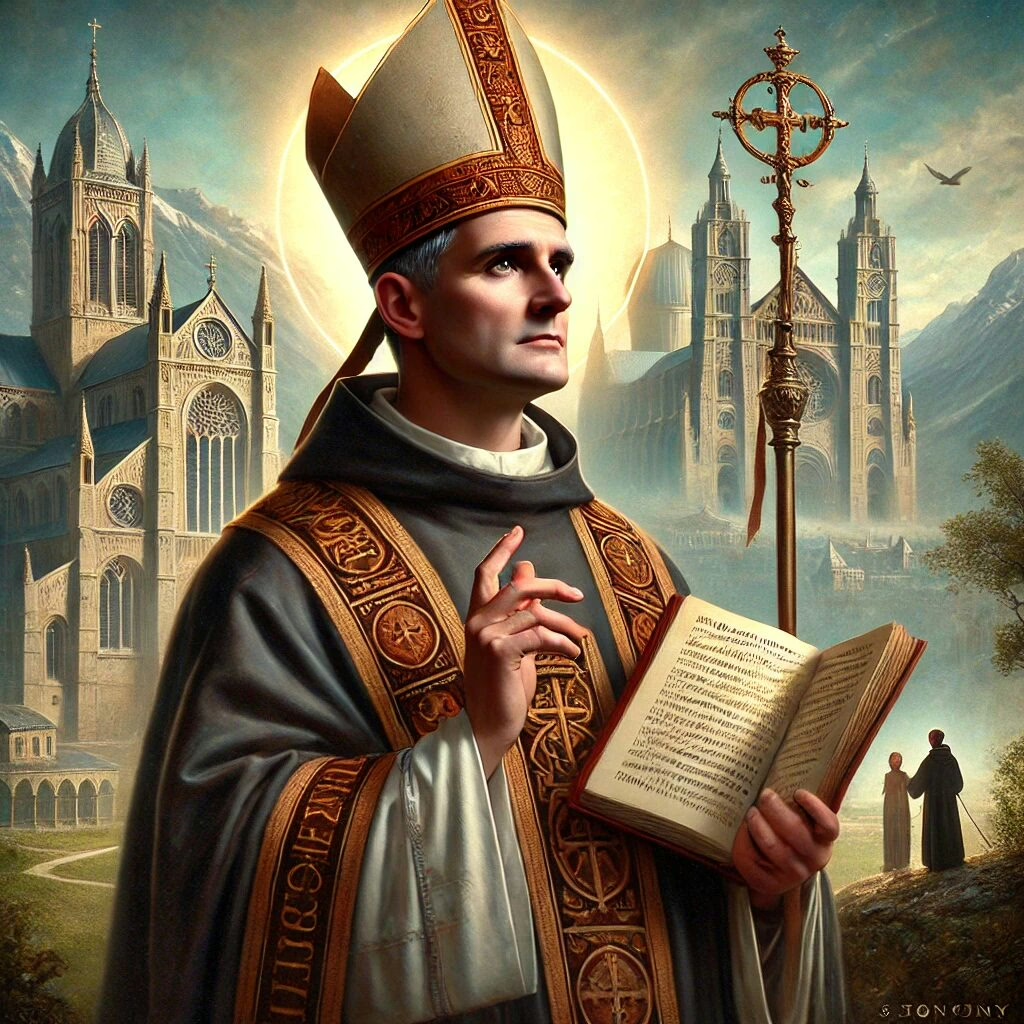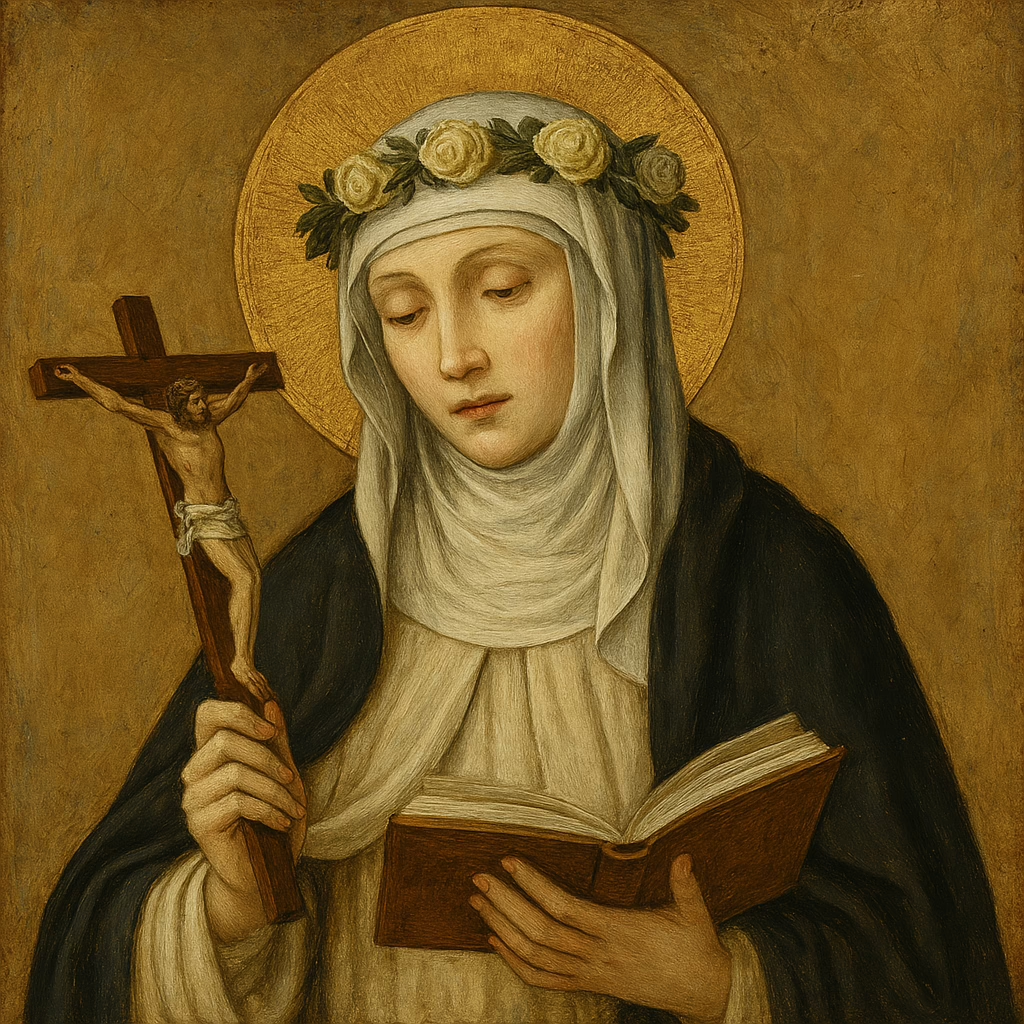St. Anselm of Canterbury: Bishop, Doctor of the Church, and Theological Pioneer
Introduction: Discovering the Legacy of St. Anselm
"In the serene mountains of Aosta, a child destined for greatness was born…" With these words, we begin our exploration of St. Anselm of Canterbury, a towering figure in the annals of Catholic theology. A beacon of intellect and faith, St. Anselm of Canterbury is revered not only for his contributions to Christian theology but also for his steadfast dedication to reforming the Church. His life, marked by both triumphs and trials, offers a profound insight into the journey of faith and reason—a journey that remains relevant to this day.
1. Early Life and Spiritual Formation
1.1 Childhood and Education
Born around 1033-1034 in Aosta, Italy, St. Anselm's early years were instrumental in shaping his intellectual and spiritual pursuits. Growing up in a region steeped in culture and learning, Anselm developed a keen interest in education. The importance of his upbringing cannot be overstated, as it laid the foundation for a life dedicated to intellectual growth and spiritual depth, deeply influenced by Benedictine principles.
1.2 Journey to Bec Monastery
In 1060, Anselm made the life-changing decision to join the Benedictine monastery at Bec. Inspired by the ideals of prayer, study, and self-discipline, he quickly rose through the ranks, demonstrating an exceptional aptitude for leadership and scholarship as both Prior and Abbot. An exploration of Benedictine spirituality reveals how these ideals profoundly shaped his character and his enduring contributions to the Church.
2. Archbishop of Canterbury: Reform and Conflict
2.1 Reluctant Acceptance of Leadership
Anselm was appointed Archbishop of Canterbury in 1093, an appointment he accepted with remarkable reluctance. Yet, the significance of his leadership in the Church during a period characterized by tension between ecclesiastical and secular powers cannot be understated. Being a leader in the Church meant safeguarding its autonomy and preserving its spiritual integrity.
2.2 The Investiture Controversy
During his tenure as Archbishop, Anselm was embroiled in the Investiture Controversy—a monumental conflict with King William II over church autonomy. He stood firm, challenging the secular influence over Church appointments, a stance that led to multiple exiles. The Investiture Controversy Explained delves deeper into this significant historical struggle. Anselm's unyielding nature in defense of ecclesiastical independence underscores the trials and tribulations that often accompany faithfulness to divine principles.
3. Theological Contributions to Christianity
3.1 Scholasticism and Major Works
St. Anselm is widely acknowledged for his foundational role in the development of Scholasticism, a medieval philosophical and theological system. His seminal writings, "Proslogion" and "Monologion," continue to captivate scholars and believers alike. In particular, his ontological argument and theory of atonement underline the ongoing relevance of St. Anselm's work to Catholic theology.
3.2 Harmonizing Faith and Reason
Anselm's perspective on faith and reason was revolutionary. He wrote, "I do not seek to understand in order that I may believe, but I believe in order to understand." This harmonious relationship between faith and reason remains a cornerstone of Catholic intellectual tradition, encouraging contemporary believers to engage in critical thought within their faith practices.
4. Devotion and Legacy of St. Anselm
4.1 Canonization and Recognitions
St. Anselm's enduring impact on the Catholic Church was formally acknowledged when he was canonized by Pope Alexander VI in 1494 and declared a Doctor of the Church by Pope Clement XI in 1720. The importance of Anselm’s legacy endures today as his teachings continue to inspire and inform the spiritual journeys of countless individuals.
4.2 Ongoing Relevance and Prayer
Anselm's teachings on harmonizing faith and reason resonate profoundly in contemporary times. Embracing his perspectives, believers are invited to pursue understanding in both intellectual and spiritual realms. As a suggested devotional practice, consider this prayer to St. Anselm:
"St. Anselm of Canterbury, guide us in seeking knowledge and wisdom with hearts filled with faith and minds open to reason."
His words remind us: _"Faith seeking understanding"_—a call to engage deeply with faith while nurturing our intellectual pursuits. In moments of uncertainty, believers can seek his intercession for clarity and insight.
Conclusion: Embracing the Wisdom of St. Anselm Today
St. Anselm’s life is a testament to a profound inner journey—marked by unwavering faith and relentless inquiry. From his formative years in Aosta to his illustrious tenure as Archbishop of Canterbury, Anselm's struggles and triumphs offer invaluable lessons. His legacy invites us to approach faith with both the heart and mind united, a sentiment that remains of utmost importance.
In our spiritual journeys, St. Anselm of Canterbury continues to be a guiding beacon. As we navigate the complexities of faith and reason, let us deepen our understanding of his teachings and seek St. Anselm's intercession for wisdom and insight.
For those inspired to delve deeper into the life and works of this theological pioneer, consider these Books on Amazon that comprehensively cover his teachings:
- "The Letters of St. Anselm of Canterbury, Volumes I-III" (Amazon)
- "St. Anselm: A Portrait in a Landscape" (Amazon)
In celebrating St. Anselm, we are called to integrate his wisdom into our lives, nurturing a faith that is both profound in heart and discerning in mind. Let his life and teachings be an enduring source of strength and inspiration in our spiritual journeys.





